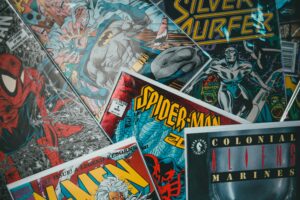Essential steps to hiring a contractor from Craigslist
 Embarking on a home remodel or landscape project is an exciting endeavor. Most people begin by envisioning their desired outcome and then reach out to multiple companies to obtain competitive quotes for the job.
Embarking on a home remodel or landscape project is an exciting endeavor. Most people begin by envisioning their desired outcome and then reach out to multiple companies to obtain competitive quotes for the job.
As you browse the internet, you may stumble upon a contractor on popular sites like Craigslist or other online directories, offering to perform the job at half the cost compared to other quotes. It sounds enticing, but could it be too good to be true?
While Craigslist and similar platforms are valuable resources for a variety of goods and services, it’s essential to exercise caution before officially hiring a contractor for the job. Asking for credentials before the contractor starts the project can save you from potential theft, liability issues, and financial losses.
Here are some important steps to follow:
Research and seek references: If you come across a contractor you like, don’t hesitate to ask for their website or inquire if they can provide references of recent customers. Reputable contractors should be proud to share examples of their work and provide you with contacts for verification. Asking for references is common practice, and it helps establish trust.
Most small businesses rely heavily on word-of-mouth advertising, so don’t be shy about seeking recommendations.
Verify their license: Contractors are typically required to hold a valid license to perform their work. You can utilize your state’s resources to verify their licensing information. Conducting a quick internet search can also provide you with valuable references.
Alternatively, you can request the contractor to provide a copy of their license or license number for your verification.
Request documentation: It’s crucial to ask the contractor for copies of their license, insurance, and bond documentation. Take the time to review these documents, ensuring that they are currently active and in force. Pay attention to the expiration dates on their license and insurance to avoid any potential issues down the line.
Be specific and thorough: Protecting both your insurance coverage and your budget is vital. Ask detailed questions such as the following:
- “Is this estimate final or subject to change?”
- “Does the estimate cover both parts and labor?”
- “Can I see where you will be purchasing the products beforehand?”
The more questions you ask, the more confident you will feel, and the contractor will recognize that you are well-informed about the process.
Hiring a contractor through online platforms can be a cost-effective option. However, conducting simple yet crucial research and asking the right questions can save you a significant amount of money and spare you potential headaches.
By taking these proactive steps, you can ensure that your home remodeling or landscaping project proceeds smoothly, with trustworthy professionals handling the job.

 Do you own a highly valued comic book that has been safely preserved since your childhood such as the legendary first appearance of Stan Lee’s Spider-Man? What about a piece of art, fur, or watch? You may be well aware that these prized possessions could be worth a fortune, but have you ever pondered what would happen if they were lost, stolen, or destroyed?
Do you own a highly valued comic book that has been safely preserved since your childhood such as the legendary first appearance of Stan Lee’s Spider-Man? What about a piece of art, fur, or watch? You may be well aware that these prized possessions could be worth a fortune, but have you ever pondered what would happen if they were lost, stolen, or destroyed? Saving money on your insurance policy is an appealing prospect, potentially putting hundreds of dollars back in your pocket each year. However, before you decide to switch, it’s crucial to keep these factors in mind. By following these tips, you can make a well-informed decision about switching your insurance policy.
Saving money on your insurance policy is an appealing prospect, potentially putting hundreds of dollars back in your pocket each year. However, before you decide to switch, it’s crucial to keep these factors in mind. By following these tips, you can make a well-informed decision about switching your insurance policy.